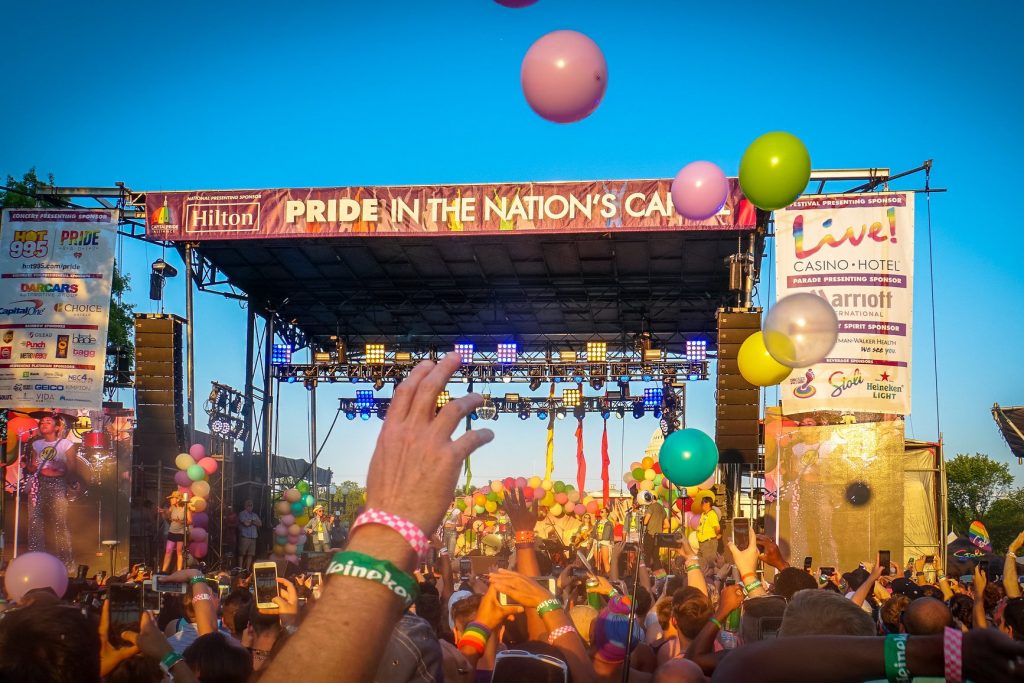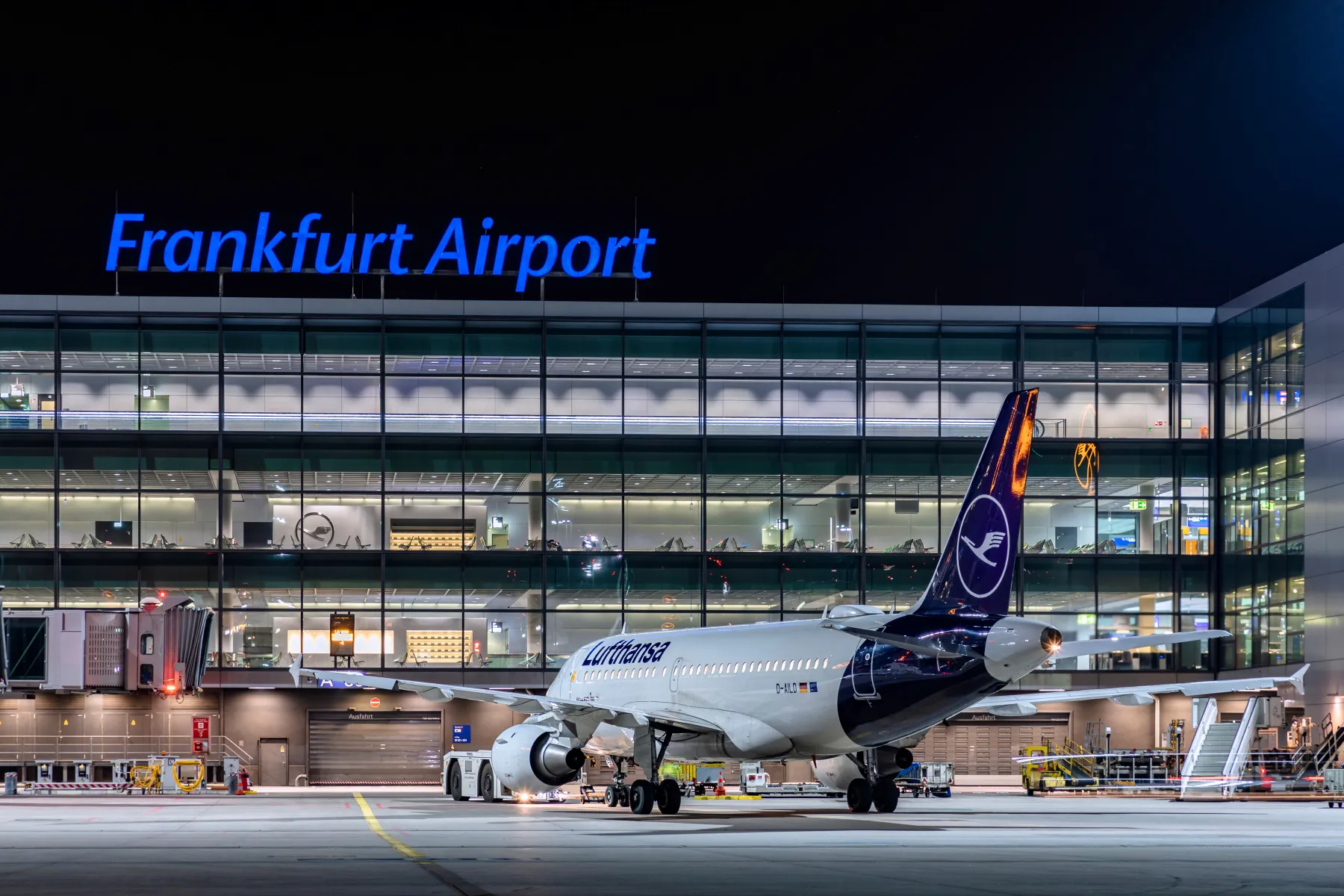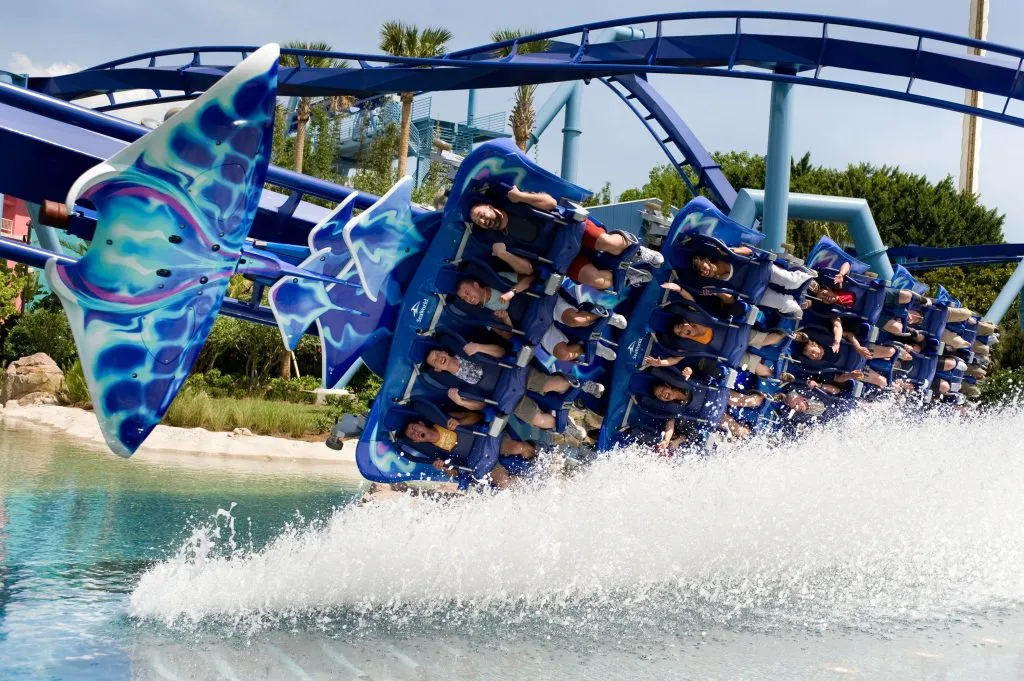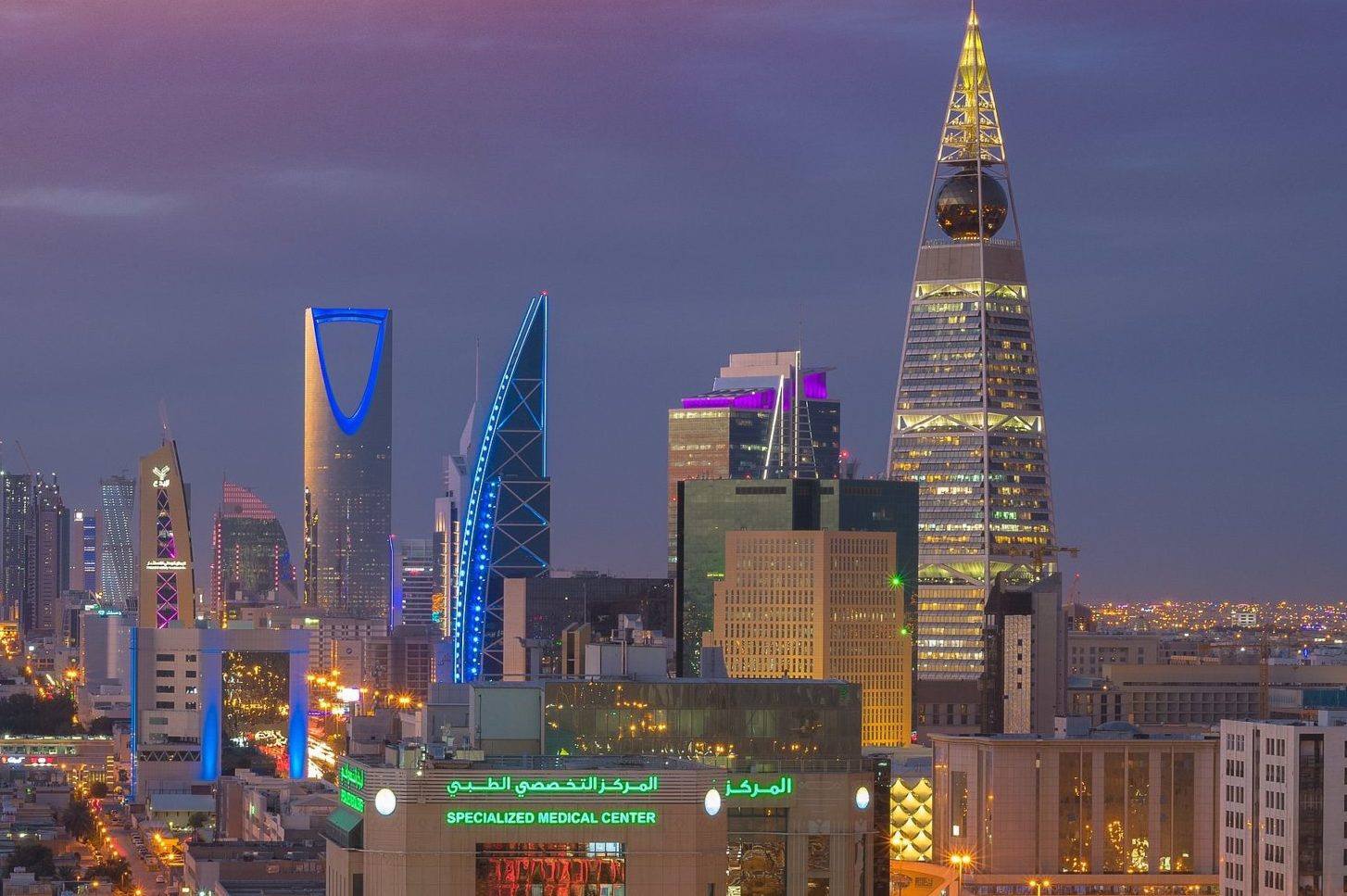Hotels Look Beyond Pride to Court LGBTQ+ Travelers All Year

Skift Take
The hospitality industry’s outreach to gay and lesbian travelers in the 1960s and 1970s was a clandestine affair, relying around guidebooks like Bob Damron’s Address Book or the Spartacus International Gay Guide to point members of the community to accepting hotels, bars, and other businesses.
Hotel courtship of the LGBTQ community today is significantly more transparent: Marriott and Hilton are just as present at Pride parades as they are in support of legal issues. Both companies signed onto an amicus brief in 2015 calling on the U.S. Supreme Court to strike down bans on same-sex marriage. The Standard, High Line, in New York City kicked off Pride last weekend with a performance from longtime ally Madonna.
But the hotel industry also sees the “rainbow washing” backlash other industries got in recent years for tossing up a rainbow logo for the month of June but not doing much for the community — sometimes even donating to candidates who oppose LGBTQ rights — the remaining 11 months of the year.
Hotel companies aim to avoid that critique with various internal initiatives, political support, and marketing campaigns.
“There is still a space for the moments that happen around Pride that are really special and a space for acknowledging what Pride is really about,” said Cherilyn Williams, a global marketing senior leader at Marriott International. “But I think what's even more important is what happens July 1. What happens after Pride? How do we play a role at continuing the conversation year-round and making sure that it is a part of our stories in a natural and inclusive way versus just once a year?”
The look beyond June isn’t new for the hotel industry, which was relatively early in its support of the LGBTQ+ community relative to other industries. It’s a smart plan, given the backlash companies in other industries received over the last month for conflicting political stances.
Companies like CVS Health, Wells Fargo, and Comcast all came under fire this year for supporting Pride but also donating money to political candidates opposed to LGBTQ+ issues.
The hotel industry has been an ally to the community through some of its most high-profile political issues in recent years, with many companies supporting the push to legalize same-sex marriage.
“It's all about walking the walk,” said Raina Nelson, workplace equality program manager at the Human Rights Campaign. “Raising a flag and making social media posts are great, but supporting LGBTQ causes and the community in tangible ways is true allyship."
Marriott was a notable supporter of marriage equality, given the Marriott family’s Mormon faith. The official stance of the Mormon church is to oppose marriage equality.
Religious beliefs don’t mix with business at the world’s largest hotel company, which is also how the company avoids the kind of backlash thrown at Chick-fil-A, the fast food chain long criticized for its founding family’s history of donating to anti-LGBTQ causes.
“We have to take care of our people, regardless of their sexual orientation or anything else,” Bill Marriott, executive chairman of Marriott International, told Bloomberg in 2012. “Our church is very much opposed to alcohol, and we’re probably one of the biggest sales engines of liquor in the United States. I don’t drink. We serve a lot of liquor. You’re in business. You’ve got to make money. We have to appeal to the masses out there, no matter what their beliefs are.”
Kimpton and W Hotels are regarded as some of the first to actively court the community, with Kimpton — before IHG acquired it — in 2004 being the first hotel company to get a perfect score of the Human Rights Campaign’s Corporate Equality Index, an annual report card on corporate policies toward LGBTQ employees. W Hotels was the first hotel brand to have a presence at New York City’s annual Pride parade.
Hilton and Marriott both launched more inclusive advertising campaigns in the last decade, with Hilton’s “Stay Hilton, Go Out” campaign featuring history, culture, and nightlife in top destinations for LGBTQ travelers beginning in 2012.
Marriott’s #LoveTravels campaign featuring members of the LGBTQ community like NBA player Jason Collins and model Geena Rocero arrived two years later.
Building a Foundation
One of the most important things a hotel company can do to court LGBTQ+ travelers is have a good reputation with its workers, said Henry Harteveldt, a travel analyst and the president of the Atmosphere Research Group.
“What really matters with the marketing is how do you start on the inside out. This is an area where travel generally does a better job than most other industries,” he added. “What matters is authenticity. Anyone who's a member of the community can spot something that's false. If a brand’s reputation doesn’t show it as being welcoming to LGBTQ guests or not supportive of its LGBTQ employees, then the community is going to see anything that's done during Pride Month as rainbow washing. They won't view it as authentic or meaningful or sincere, and they'll just scroll by the page or basically ignore it.”
Perfect scores on the HRC’s Corporate Equality Index are basically an industry standard these days. Hyatt and Marriott were among the first major hotel companies to offer domestic partner benefits years before marriage equality became the law of the land. Marriott leaders during an interview with Skift also noted their transgender health benefits for associates.
“There's a difference between physically being somewhere and feeling like you belong, and we are aiming for belonging,” said Apoorva Gandhi, vice president of multicultural affairs and business councils at Marriott, before adding with a laugh: “They always say diversity is being invited to the dance. Inclusion is being asked to dance, and belonging means dancing like nobody's watching.”
Hilton hosts numerous events throughout the year supporting the community and offers comprehensive LGBTQ+ team member and dependent benefits coverage, including towards transgender reassignment surgery. The company introduced in 2017 an adoption assistance program, where Hilton reimburses team members for adoption expenses up to $10,000 per child.
“You can’t truly support a community without focusing on everyone we serve, including guests, groups, and our own team members,” said Amy Martin-Ziegenfuss, senior vice president of global enterprise and brand marketing at Hilton. “By focusing on all of these elements holistically, Hilton benefits by becoming a stronger, more inclusive organization.”
The Limits of Allyship
Supporting LGBTQ+ employees and travelers is the right thing to do, but there is also a financial benefit as well. The US LGBTQ+ travel industry is roughly $115 billion, Martin-Ziegenfuss said in reference to a Community Markets & Insights study.
But the U.S. is one thing. These are global companies that also operate properties in parts of the world that aren’t as friendly — and sometimes even hostile — toward the community.
“It's not always perfect, of course, and one of the challenges that the global brands face is that sometimes corporate values and corporate beliefs clash with local policies or laws,” Harteveldt said.
Outward support of the community is illegal in some countries. Both Marriott and Hilton are supporters of the Global Equality Fund, a public-private partnership that aims to advance LGBTQ+ rights throughout the world.
“We recognize that every country is a little bit different,” Gandhi said. “Our commitment is to protect privacy in the walls that we control. We always make sure that we will treat everyone with dignity and respect — no matter who you love, or who you are, whether you're a guest or associate — in the walls that we control.”
While some parts of the world may not be as inclusive toward LGBTQ rights, organizations like the International Gay & Lesbian Travel Association work to ensure companies can still provide a hospitable environment for these travelers in all countries.
This can mean something as basic as training staff to not question when a same-sex couple checks in and requests a room with a single bed. The organization works with companies like Accor, MGM Resorts, Hilton, Marriott, and Airbnb.
“Our partners understand and recognize [some countries aren't as supportive toward LGBTQ+ individuals], but they still want their employees trained because LGBT travelers are traveling to those destinations for business or possibly leisure,” said John Tanzella, CEO of the IGLTA. “There are LGBT people that live there, there are LGBT organizations, and, obviously, there are LGBT travelers.”
Hospitality’s Next Inclusive Frontier
Obviously, the hospitality industry’s goal is to get to a point where inclusive marketing campaigns and political support become so natural that they don’t warrant media coverage. But until that day arrives, there are more near-term goals.
The IGLTA continues to weigh in with the global push for marriage equality, like the legalization effort in Bermuda in recent years. The organization as well as its travel industry partners like Carnival Corp. voiced their support of the legalization effort, and more of that is likely around the world.
“It is really about leveraging the economic power as well as the social impact for our community,” Tanzella said. “It's sort of a grassroots, initial start.”
The brands themselves very much support and celebrate Pride but also throttle ahead with more inclusive campaigns, employee practices, and political affairs.
“Things that some communities take for granted, like feeling safe when you travel, will continue to be a focus,” Martin-Ziegenfuss said. “Smart marketers will continue to listen to LGBTQ+ travelers, learn from them and evolve with them. It may feel like we’re seeing fewer over-the-top marketing moves, but when you think about it, that may be an indicator that we’re moving to a more inclusive place. And that is a great thing to see.”




